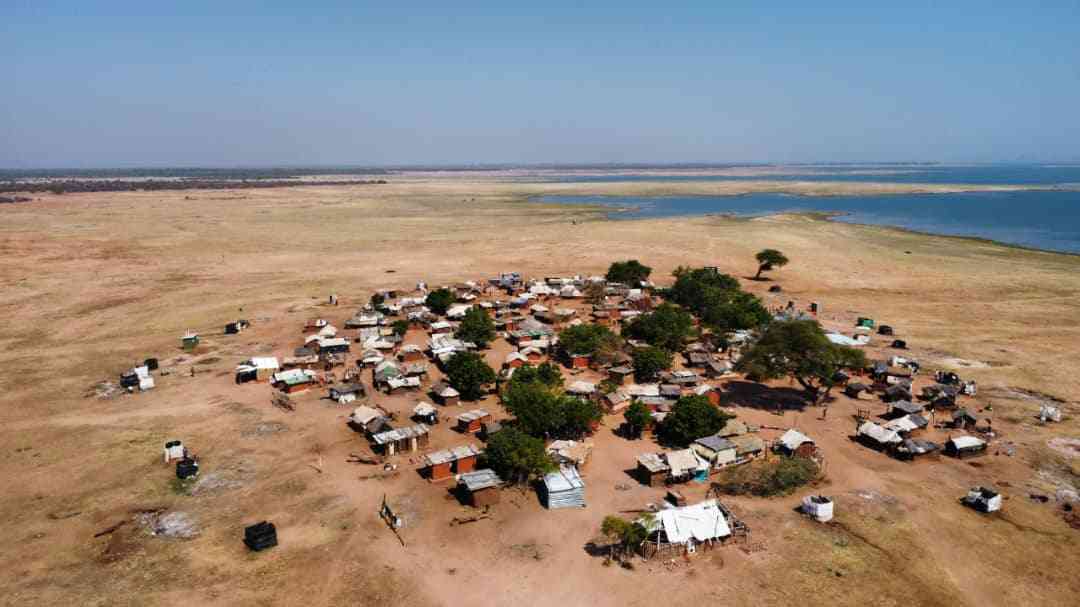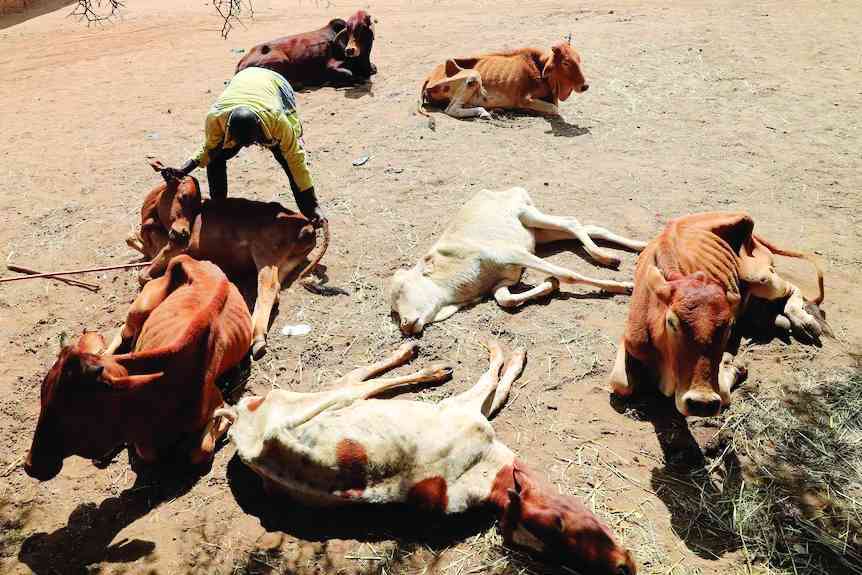
HUDDLED over a plate of sadza and beans, a group of young men seemingly ignore the fish sun-drying on a thatching nearby, a delicacy for some, to concentrate on their meal.
Anyone else would feel that the young men would go for the fish instead of beans.
But for them, fish means business and the business is in imminent danger.
However, the seemingly dejected group is seized with an issue that has gripped the King’s Fishing Village or King’s Camp for some time.
At the same time the young fishermen are huddled over their meal, the camp’s leaders are meeting some visitors who have just arrived in a van.
They are not sure who the visitors are, but they just a group of journalists accompanied by officials from the Zimbabwe Parks and Wildlife Management Authority (ZimParks) and African Parks.
Their main worry: a set of rules and regulations that they believe would hamper their fishing activities, particularly the fact that the authorities are against the increasing number of people at the King’s Camp along Lake Kariba.
Authorities at ZimParks and their partners are worried by the growing number of fishermen along the lake, something which they fear has led to overfishing in Lake Kariba.
- ‘Binga not fully marketed’
- Increased poaching in Kariba threatens fish farming
- Kariba fishing tourney breaks with tradition
- Feature: Villagers brace for another displacement. This time, It’s for coal
Keep Reading
A leader within the fishing communities early this year highlighted the challenges of unsustainable fishing, which is contributing to the depletion of fishing yields in Lake Kariba.
Fishermen chairperson Nisbert Mapfumo tells journalists that overfishing is disturbing the water ecosystem, greatly reducing fish population.
“Dangerously low water levels and laws governing fishing practices in the lake are causing overfishing as fishermen compete for fishing space,” he says.
Mapfumo also highlights the emergence of pirates in the lake, leading to fishermen losing their catch, equipment, fuel and sometimes lives.
“The problems of theft by pirates in the lake are on the increase as they forcibly take fish, fishing equipment and fuel from fishermen. Sometimes fishermen lose their lives to pirates” he says.
ZimParks and its partners, informed by such problems on Lake Kariba, are pushing to regulate the fishing activities to avoid overfishing, which is threatening sustainable and commercial fishing on the lake.
Some of their regulations include barring any fishermen without a permit from the lake, controlling the amount of hours they are allowed during fishing and setting fish net standards that control the size of fish caught for commercial purposes.
However, to the chagrin of the fishermen, ZimParks through African Parks, in a bid to control the population at King’s Camp, has encouraged the fishermen to leave their wives at home.
They have also encouraged them not to build permanent structures on the “island”.
Kings Camp Fishing Village is home to a thriving Co-operative Fishing Community, which has access to exclusive fishing areas granted under the terms of their operating licence.
King’s Camp is well known for its landing beach which is accessible even to tourists, although the low water levels on the lake have left the island as part of the land mass.
King’s Camp was allocated 28 permits open for three fishermen each and authorities allow an extra 10 people to relief the people involved in the fishing activities.
According to the allocated permits, the fishing village should accommodate at least 94 people although the population has over the years ballooned to more than 300.
But the fishermen at the camp are agitated by the new rules.
In 2019, ZimParks invited African Parks to assume management of Matusadona National Park, which also covers King’s Camp, and a 20-year agreement was signed with the vision to revitalise the park for wildlife and communities.
The partners have been seized with massive wildlife conservation efforts that have seen Matusadona becoming a “haven for wildlife, a source of hope for people and a popular tourism destination”.
That has led to enforcement of the laws to the chagrin of the fishermen.
Some of them argue that the camp has been home to their ancestors.
Speaking through their leaders, chairman Mathious Musanje and his vice Reggie Tauro, during a visit recently, the fishermen tell journalists that the laws are affecting their livelihoods.
“We are only allowed on the lake at controlled periods, but for some of us, getting to the fishing areas takes about three hours to reach using our boats.
“Sometimes we are even arrested for overstaying on the lake, losing around US$200 whenever the parks’ rangers arrest us,” they say.
The fishermen also express fears that the authorities are trying to sell the “island” to some buyers.
“We have heard rumours that there are some people who want to buy this camp and we believe this is where the tough laws are coming from,” they say.
The fishermen are also unhappy with a push to bar their wives from the camp.
“We cannot chase our families from the camp. Maybe those who have the power to enforce the laws should do so but they have no right to remove them,” they said.
“They (authorities) should be open that they are being tough on us because the island is part of Matusadona National Park.
“Why is it that they are only concerned with the people at King’s Camp when there are several other fishing villages on the lake where the fishermen are living with their wives?”
They say while they would want to engage the authorities, ZimParks has already declared that the rules and regulations are part of Zimbabwe’s laws.
“There was a time we thought that African Parks introduced these laws. We have since understood that they are part of our country’s laws,” the leaders say.
But Lake Kariba has a fishing capacity of approximately 500 boats both for Zimbabwe and Zambia.
Zimbabwe has an allocation of around 265, with Zambia around 235 depending on time to time assessments.
Former Environment, Climate and Wildlife minister Mangaliso Ndlovu recently told Parliament that Zambia has more than 1 300 fishing boats in Kariba, while Zimbabwe has close to 500.
“We have been taking measures to restrict issuance of new permits, but also to increase the costs so that we are able to meet the compliance cost,” Ndlovu said.
Meanwhile, ZimParks spokesperson Tinashe Farawo reiterates the need for the fishermen to understand the challenges that Lake Kariba was facing including effects of climate change.
“We need to protect our wildlife heritage for future generations and some of regulations also help in protecting our resources,” he says.
“We also encourage you to contribute to the current efforts by the Parliament of Zimbabwe to align the ZimParks Act to the Constitution.”
The idea of establishing fishing camps along the Lake Kariba has never been to create permanent settlements along the massive water body.
But over the years, these camps had grown to include individuals who have nothing to do with the fishing activities.
The growth of both populations and settlements has led to various challenges, resulting in unsustainable fishing.
For Reyna Trust, an environmental, climate and water conservation organisation, executive director Sydney Chisi says the conflict at Lake Kariba has been taking place for quite some time while efforts have been put by research institutions and the Zambian and Zimbabwean authorities.
“With the lowering of the Lake Kariba waters, it also means that this artisanal fishing taking place would impact heavily on the ecosystem, not just of the waters of Kariba, but also of the surrounding area as more poaching is going to take place and desperation for socio-economic challenges happening in either of the countries also supersedes the desire to maintain the ecosystem of that water,” Chisi says.
“So there has to be a bilateral co-operation that is most stringent and that would be agreed upon to serve the challenges that are currently faced that have been as old as the dam is in terms of artisanal poaching that is taking place within Lake Kariba.”
According to African Parks, at 1 470km2, Matusadonha is a unique and varied landscape consisting of undulating hills descending to thickly wooded browse-rich habitat that is interspersed with prolific perennial springs and tall riverine vegetation.
“Open grasslands surround the northern edge of the park, which borders the vast Lake Kariba. A healthy variety of mammal species occur within Matusadona, including lion, leopard, buffalo, zebra, elephant, hippo and an impressive variety of antelope species,” African Parks opines.
It, however, notes that while there are many challenges, African Parks, in collaboration with ZimParks, has begun to revive Matusadona through a holistic management approach of good governance, effective conservation law enforcement, community engagement initiatives, and restoration of wildlife populations through reintroductions.










